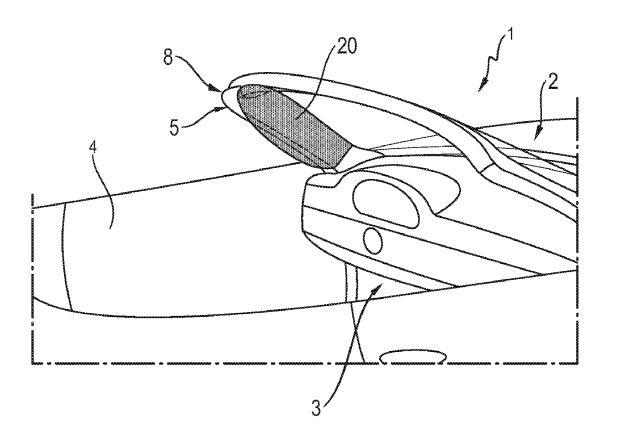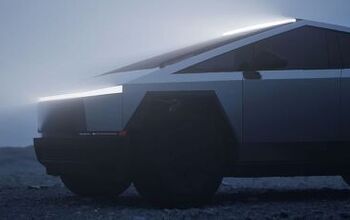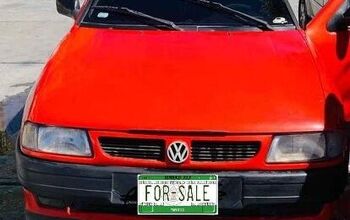Porsche's A-pillar Airbag Patent Could Prevent Serious Headaches for Convertible Owners

A segment of the automotive enthusiast community holds a real prejudice against convertibles. While the majority of the ire stems from an irrational bitterness or assumption that any car that sacrifices any amount body stiffness for style is inherently wrong, there is one valid complaint: most convertibles are less safe in a crash than a hardtop.
With that in mind, Porsche has patented an airbag concealed within the A-pillar specifically designed to protect soft-top occupants in the event that the windshield frame bends toward their fragile skulls during an accident — a handy feature for a vehicle lacking roof support. However, there is no reason the system couldn’t also be implemented in vehicles with a rigid ceiling.
In the patent diagrams, originally spotted by Motor1, Porsche has the device occupying the entire length of the pillar. The airbag would expand and protect passengers upper body as they move forward during a collision. With convertibles’ tendency to deform in that specific area in a crash, a large airbag would be of additional value.
This sort of safety feature would also be especially welcome in a small overlap impact, where the majority of force is focused on the front corner of a vehicle. Tests conducted by the Insurance Institute for Highway Safety routinely show that this type of crash can send the head on a trajectory that misses the steering wheel airbag. While side-curtain bags mitigate some of the risk, those aren’t an option on a convertible and test dummies occasionally careen into A-pillars in cars equipped with sill-mounted inflation devices.
Obviously, keeping the cabin from deforming is the best way to ensure occupant safety, but an additional airbag could be the difference between life and death for those who prefer to feel the wind in their hair.
[Image: Porsche]

A staunch consumer advocate tracking industry trends and regulation. Before joining TTAC, Matt spent a decade working for marketing and research firms based in NYC. Clients included several of the world’s largest automakers, global tire brands, and aftermarket part suppliers. Dissatisfied with the corporate world and resentful of having to wear suits everyday, he pivoted to writing about cars. Since then, that man has become an ardent supporter of the right-to-repair movement, been interviewed on the auto industry by national radio broadcasts, driven more rental cars than anyone ever should, participated in amateur rallying events, and received the requisite minimum training as sanctioned by the SCCA. Handy with a wrench, Matt grew up surrounded by Detroit auto workers and managed to get a pizza delivery job before he was legally eligible. He later found himself driving box trucks through Manhattan, guaranteeing future sympathy for actual truckers. He continues to conduct research pertaining to the automotive sector as an independent contractor and has since moved back to his native Michigan, closer to where the cars are born. A contrarian, Matt claims to prefer understeer — stating that front and all-wheel drive vehicles cater best to his driving style.
More by Matt Posky
Latest Car Reviews
Read moreLatest Product Reviews
Read moreRecent Comments
- Varezhka I have still yet to see a Malibu on the road that didn't have a rental sticker. So yeah, GM probably lost money on every one they sold but kept it to boost their CAFE numbers.I'm personally happy that I no longer have to dread being "upgraded" to a Maxima or a Malibu anymore. And thankfully Altima is also on its way out.
- Tassos Under incompetent, affirmative action hire Mary Barra, GM has been shooting itself in the foot on a daily basis.Whether the Malibu cancellation has been one of these shootings is NOT obvious at all.GM should be run as a PROFITABLE BUSINESS and NOT as an outfit that satisfies everybody and his mother in law's pet preferences.IF the Malibu was UNPROFITABLE, it SHOULD be canceled.More generally, if its SEGMENT is Unprofitable, and HALF the makers cancel their midsize sedans, not only will it lead to the SURVIVAL OF THE FITTEST ones, but the survivors will obviously be more profitable if the LOSERS were kept being produced and the SMALL PIE of midsize sedans would yield slim pickings for every participant.SO NO, I APPROVE of the demise of the unprofitable Malibu, and hope Nissan does the same to the Altima, Hyundai with the SOnata, Mazda with the Mazda 6, and as many others as it takes to make the REMAINING players, like the Excellent, sporty Accord and the Bulletproof Reliable, cheap to maintain CAMRY, more profitable and affordable.
- GregLocock Car companies can only really sell cars that people who are new car buyers will pay a profitable price for. As it turns out fewer and fewer new car buyers want sedans. Large sedans can be nice to drive, certainly, but the number of new car buyers (the only ones that matter in this discussion) are prepared to sacrifice steering and handling for more obvious things like passenger and cargo space, or even some attempt at off roading. We know US new car buyers don't really care about handling because they fell for FWD in large cars.
- Slavuta Why is everybody sweating? Like sedans? - go buy one. Better - 2. Let CRV/RAV rust on the dealer lot. I have 3 sedans on the driveway. My neighbor - 2. Neighbors on each of our other side - 8 SUVs.
- Theflyersfan With sedans, especially, I wonder how many of those sales are to rental fleets. With the exception of the Civic and Accord, there are still rows of sedans mixed in with the RAV4s at every airport rental lot. I doubt the breakdown in sales is publicly published, so who knows... GM isn't out of the sedan business - Cadillac exists and I can't believe I'm typing this but they are actually decent - and I think they are making a huge mistake, especially if there's an extended oil price hike (cough...Iran...cough) and people want smaller and hybrids. But if one is only tied to the quarterly shareholder reports and not trends and the big picture, bad decisions like this get made.



































Comments
Join the conversation
Are fixed roof cars safer than convertibles? In some cases, yes, and in others, not any safer. I used to ride motorcycles. A combination of getting older, and drivers less attentive convinced me to go to a roadster.
This certifiable Good Idea might deliver a terminal face punch to some of us. I tend to sit tall in a car. The last convertible I sat in was a VW Beetle. Even with the seat at lowest position, my eyes were close to windshield level. Raising the seat, I could see over the windshield, making it a mere "windscreen," like on a Morgan. My first car was a convertible, a "Cabriolet," in fact. But it's upright, Pininfarina styling allowed an large, upright windshield, with great visibility and headroom. Those days are no more,sadly.